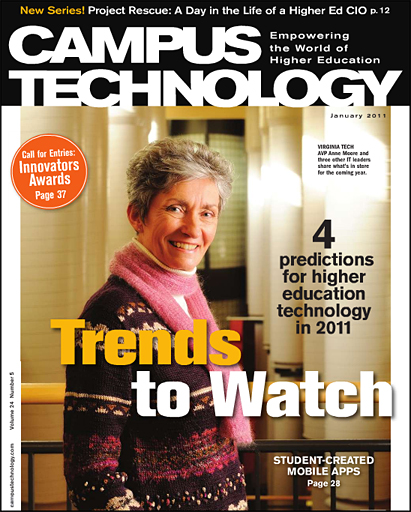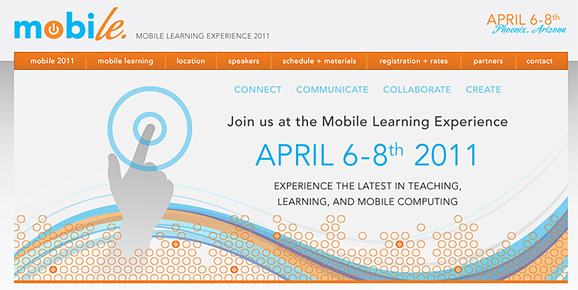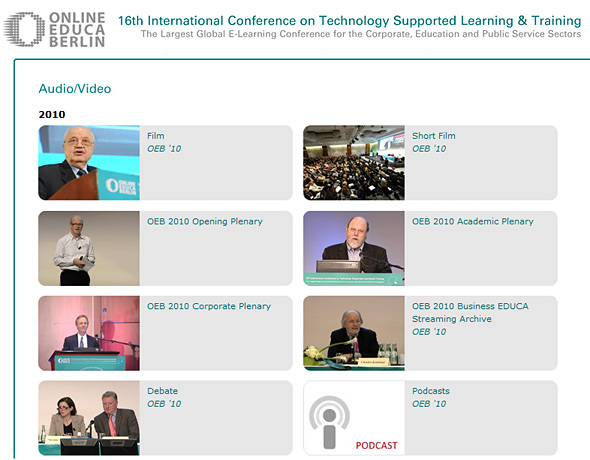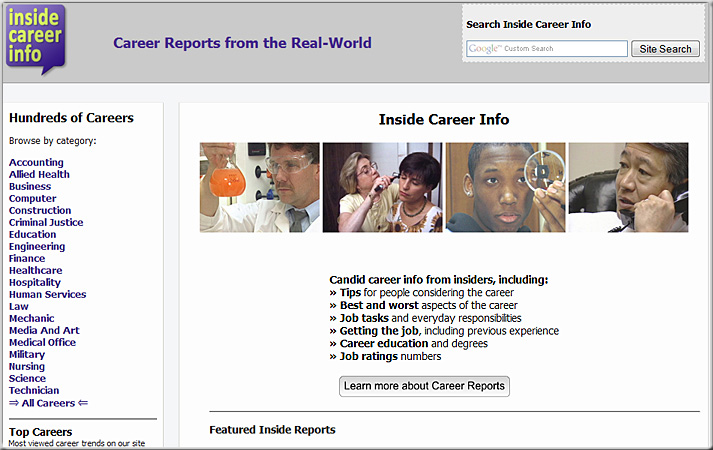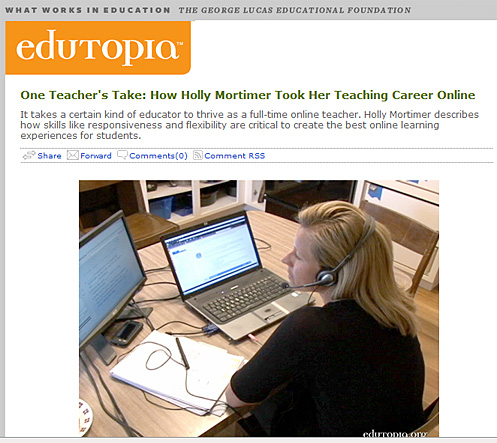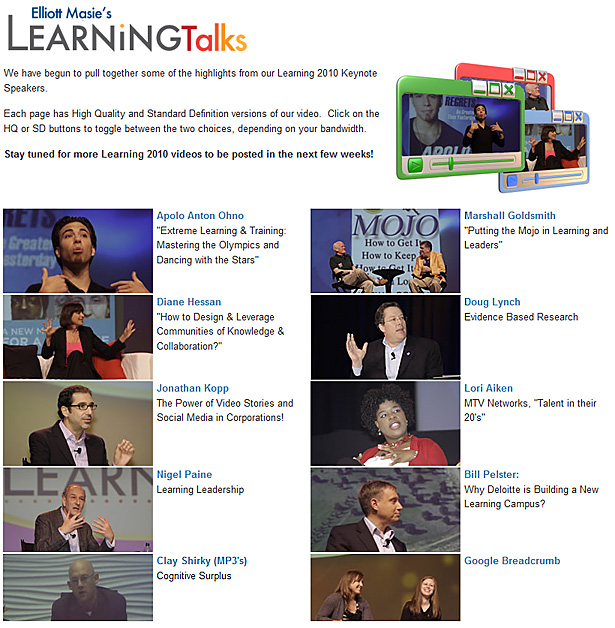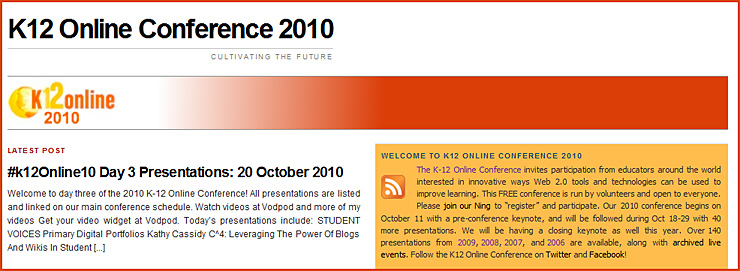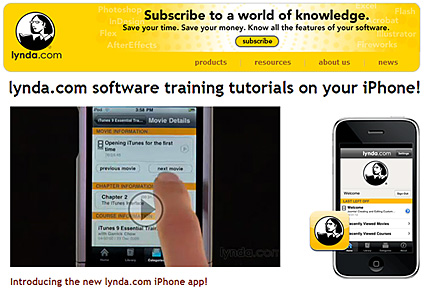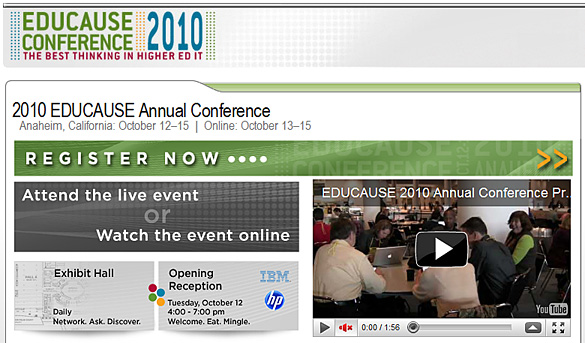Clayton R. Wright’s Mega List of Ed Conferences — from Rick’s Café Canadien
Simple tools for digital classroom — from November Learning by guest blogger Geoff Gevalt
The hardest thing for teachers to do is make the transition from paper and pencils to online media: Not enough computers, not enough knowledge, not enough time and a whole new way of doing things. We work with hundreds of teachers in the same situation and we offer this advice:
- Take small steps.
- Find a couple of tech-savvy kids in each of your classes to help.
- Explore the digital world on your own.
- Seek out people in the school or in professional development spheres to mentor you.
- Don’t be afraid to fail.
- Don’t be afraid if you don’t have all the answers – your kids will help.
Teacher Knowledge — Exploring, a few links…
The Learning Ecosystem — from Chief Learning Officer by Mal Poulin
“Without a sustainable, user-friendly and easily implemented plan to capture and spread information between employees, technology is just hardware and software.”

- Environments, cultures, organizations, and methods that support workplace learning and performance. It’s not about the software; it’s about what they do with it.
- Strategies, processes, and tools to enable learning in every aspect of the business or operation. The goal is to yield front-line performance improvements that result in customers who notice and come back for more products and services.
— information per William Lefavour
Inside Career Info is a searchable collection of hundreds of candid career reports written by “insiders”, successful professionals who are actually doing the job. Each of the 600 reports on the site contains:
- A description of what actually happens in the job
- What each professional likes and dislikes about his/her career
- Tips and advice for getting into the career and succeeding
- Education and previous experience relevant to the career
- Insights and other information that may not be obvious to an outside observer
We’ve been gathering these career reports over the past year through fund-raising programs with a variety of non-profit organizations, such as parent-teacher organizations. We are continuing to add to our collection to expand the richness and breadth of our coverage.
All of the reports are available at no cost and with no registrations.
55 important technology terms you should know if you are starting a new job — from Diane Hamilton
Elliott Masie launches LearningTalks – Free Video Talks on Learning
We are pleased to announce the launch of LearningTalks – a series of short, free, video interviews on learning. This project of The MASIE Center is modeled after the valuable TED Talks, and begins with the release of over 40 segments from Learning 2010. There are interviews with Apolo Ohno, Marshall Goldsmith, Learning Leaders from JCPenny, Yum! Brands, CNN and Peace Corps and many more.
These 3 to 9 minute learning segments are now live at:
LearningTalks – http://www.learningtalks.com
.
Learning TRENDS by Elliott Masie – Nov 3, 2010.
#646 – Updates on Learning, Business & Technology.
55,181 Readers – http://www.masie.com – The MASIE Center.
Excerpt:
Learnings from Learning!
Here were a few of my learnings – as a I interviewed our keynoters and interacted with the 1,700 colleagues:
* Intensity Matters:
I chatted with Apolo Ohno about the role that intensity played in training for his performance at both the Olympics and Dancing with the Stars. The answers were all about intensity and focus. He knew that to reach the “1%” level of performers, he had to engage in a long term intensity of training. This meant coaches, numeric feedback and framework shifts. I started and ended my interview with Apolo chatting about the role that his father played in his performance. And, his 2% level of body fat was a level of intensity that took the breath of the audience away 🙂
* From Social to Engagement:
Several of our speakers drilled down on the role of social media and social networks for learning and development. The challenge for designers will be to use these technologies and methods for deeper employee engagement – and to develop models that are deep and meaningful rather than wide and superficial. A number of speakers commented about the hype and “ghost town” quality of many internal social networks – that start with a big bang but don’t really impact the daily lives of employees or assist them with performance.
* Quiet on the e-Learning Brand:
I realized that none of our main stage speakers and few of the breakout speakers used the word “e-Learning”. The discussions were clearly about leveraging technology for learning – from JCPenny using their cash registers to deliver video messages from the CEO to the Peace Corps using smart phones to display instructional videos in the field, but the “e-Learning” brand seems to be rapidly shrinking. Traditional branched CBT like modules seem to be growing mainly in the compliance arena, where more learner driven content formats are expanding in the performance arena. We have never seen more learning using technology for design, delivery or collaboration. But, the “e” is dropping away in the branding.
* 30 Under 30 Rocks:
It was a delight to host our 30 Under 30 group of rising learning leaders. They spoke to the 1,700 participants with a diverse and intriguing voice – asking us to drop the generational stereotypes, explore newer models of learning design and development, and to broaden the diversity in learning leadership. The led sessions at our event, introduced a new mobile learning product from Google and made an incredible impact on the community.
* Flip Happens:
One of my keynote themes was the rise of Flip Learning – reversing the steps in a process for higher impact. For example, next year we will have many of the sessions available on video BEFORE the event, so that the discussion can start at minute one of the breakout (From DSC: For those of us in higher ed, flipping is worthy of experimentation, don’t you think?) We played with other Flip models, including teaching content backwards from example to theory.
* Design Slowly:
While there is much made of rapid design – one of the things that seemed to “work” at Learning 2010 is that we took our time in the design process. Keynote sessions were designed over 10 months and updated, changed and evolved right up to the moment that we started a session. Sometimes, learning design needs to take time, reflection and reconsideration. So, I am erasing the whiteboards in my office and the online mind map in my planning cloud – and starting on the design for Learning 2011, which will happen from Nov 6 to 9 in Orlando.
In the next 10 days, we will be publishing much of the video and content from Learning2010 at http://www.learningwiki.com.
Program for the online site of the house
Tracks for onsite program:









